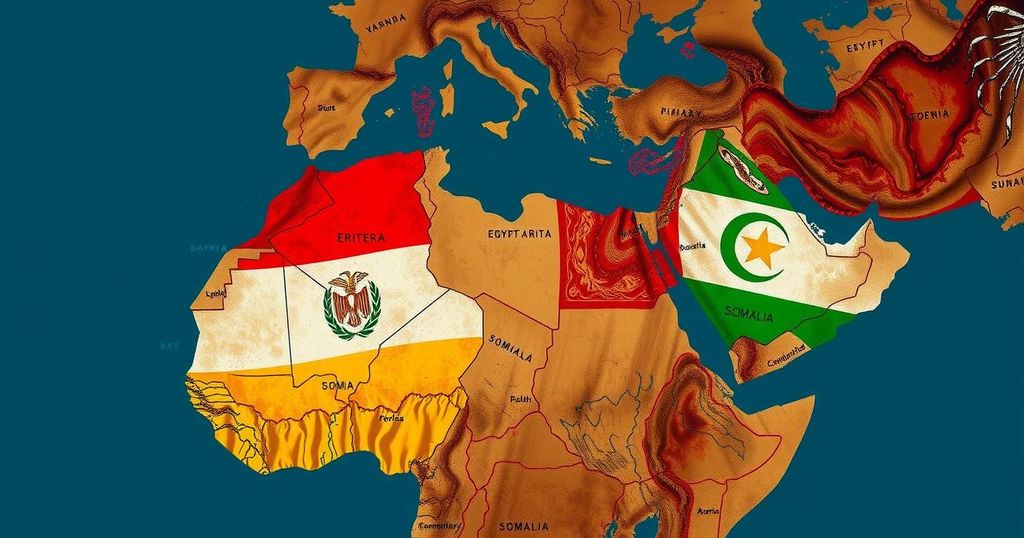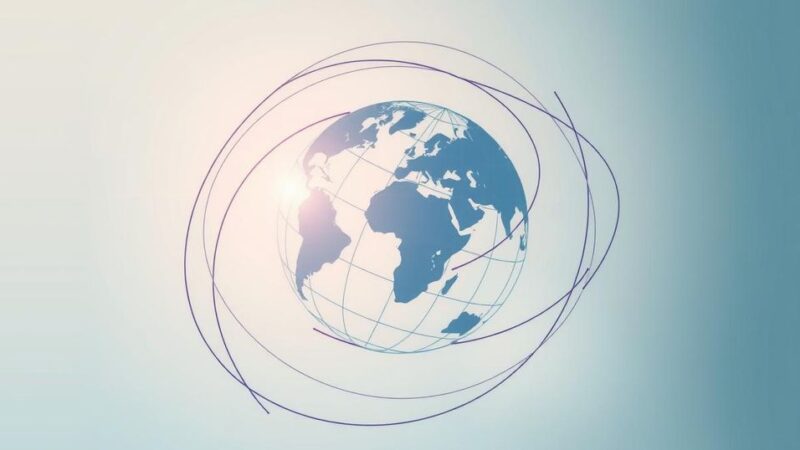A trilateral summit involving Egypt, Eritrea, and Somalia signals a major shift in the Horn of Africa’s geopolitics, primarily aimed at addressing concerns regarding Ethiopia’s actions. The meeting focused on regional cooperation and autonomy but underscores a collective effort to counterbalance Ethiopia’s influence, especially amidst ongoing tensions related to the Grand Ethiopian Renaissance Dam. Ethiopia must navigate these developments carefully to secure its interests in a volatile environment.
A recent summit involving Egypt, Eritrea, and Somalia marks a significant shift in the geopolitical landscape of the Horn of Africa, a region characterized by ongoing instability and competitive interests. The meeting, which took place in Asmara, Eritrea, aimed to foster unity in response to prevalent regional security challenges, with Ethiopia looming as a primary concern. The summit was heralded as a strategy to enhance cooperation and safeguard regional autonomy, yet it simultaneously seeks to isolate Ethiopia, which is embroiled in its own controversies, particularly regarding its dealings with Somaliland and its contentious relationship with Egypt over the Grand Ethiopian Renaissance Dam. The trilateral talks, attended by Eritrea’s President Isaias Afwerki, Egypt’s President Abdel Fattah al-Sisi, and Somalia’s President Hassan Sheikh Mohamud, resulted in a joint commitment to uphold territorial integrity and resist foreign interference, pointing to a notable alignment of interests against Ethiopia. Notably, Somalia’s recent military agreement with Egypt signifies a deepening security partnership that is likely to further shift the balance of power in the region. This development is underscored by the dispatch of military aid from Egypt to Somalia to combat the Islamist militant group al-Shabaab, indicating an increasingly cohesive Cairo-Mogadishu axis that threatens Ethiopia’s regional standing. Ethiopia’s attempts to negotiate territorial deals, including controversial access to Somaliland’s coast, have exacerbated tensions with both Somalia and Egypt. Furthermore, Egypt’s fears surrounding the Grand Ethiopian Renaissance Dam heighten these rivalries; the dam represents a critical issue involving water rights, with Cairo perceiving it as an existential threat. The lack of progress in negotiations has led to escalating concerns about potential military escalations. Eritrea’s participation in this emerging alliance represents a strategy to assert its influence post-independence while also addressing its historical grievances with Ethiopia. The country’s location near the Bab el-Mandeb Strait positions it as a significant player in securing vital maritime routes and countering Ethiopia’s rising influence. This recent gathering of Egypt, Eritrea, and Somalia suggests a reconfiguration of regional alliances, indicating a clear shift away from longstanding partnerships as these nations seek to consolidate military and political control. Egypt’s involvement despite its geographical distance from both Somalia and Eritrea signals a calculated effort to utilize proxies in a potential conflict with Ethiopia, leading to heightened regional tensions. The implications of this are significant, as Ethiopia must navigate these new alliances while engaging diplomatically to secure its interests in a landscape ripe with volatility. Ethiopia is urged to act decisively, balancing its diplomatic engagements with regional actors, particularly Egypt and Eritrea, while also seeking support from international bodies and allies to counteract the evolving geopolitical dynamics. Improving its public diplomacy and establishing clear stances on regional issues, especially water management, will be crucial in shaping its future stability.
The geopolitical dynamics of the Horn of Africa have historically been shaped by complex relationships and rivalries among countries in the region. Ethiopia, as a populous nation, has often found itself at the center of these power plays, particularly in light of its relationships with Somaliland and Egypt regarding water rights linked to the Grand Ethiopian Renaissance Dam. The recent summit between Egypt, Eritrea, and Somalia signifies a shift as these nations confront Ethiopia’s growing influence and seek enhanced cooperation against perceived threats. Understanding these dynamics is vital for analyzing the stability and strategic interests of the Horn of Africa.
The recent summit among Egypt, Eritrea, and Somalia reflects a significant reorganization of alliances within the Horn of Africa, emphasizing a collective effort to confront Ethiopia’s influence in the region. By consolidating military and political partnerships, the triad is poised to redirect power dynamics, potentially leading to increased tensions. Ethiopia’s response will be critical; it must engage in robust diplomacy and strengthen alliances to navigate this evolving geopolitical landscape effectively.
Original Source: thehill.com






